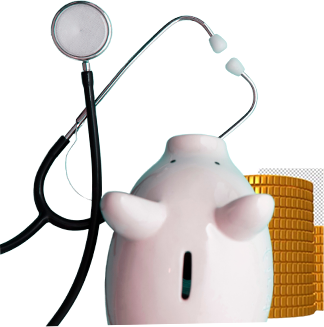PERSONALIZED DIET PLAN FROM
Nutritionist for Hormone Balance

Contact Us
Hormones are core components that regulate various physiological processes across the human body. The endocrine glands produce them and control major processes such as sleep, mood, metabolism, and reproduction. A disruption in the normal hormone levels can cause many essential processes in the body to go out of balance and cause further issues such as fatigue, weight fluctuations, mood swings, metabolic disorders, and more issues that may be life-threatening if not treated appropriately. While the disruption can be due to numerous reasons, a well-certified nutritionist for hormone balance can help you retain proper regulation of hormones in your body and enhance your overall health with a personalized diet plan. If you are experiencing hormonal balance issues, get in touch with our hormone nutritionists and dietitians at Qua Nutrition!

Why Work with a Nutritionist for Hormone Balance?
While hormonal balances can occur due to numerous reasons, such as improper sleep, stress, underlying medical conditions, and more, improper diet is a mainstream factor that leads to this disruption. Consulting with an experienced nutritionist with a specialization in hormone balance can help you with a well-tailored custom meal plan that can restore proper regulation, improve symptoms, and better your overall health. Find out how working with hormone nutritionists can help you:
Personalized Meal Plan: A custom meal plan that is based on your hormonal requirements can be beneficial in stabilizing key hormones such as insulin, cortisol, estrogen, progesterone, and other important hormones. This can help your overall health.
Nutrient Optimization: Some vitamins and minerals are crucial for proper production and regulation of hormones. A nutritionist for hormone balance can provide you with a meal plan that is suitable for your lifestyle as well as contains these essential components.
Weight Management: One of the major side effects of hormonal imbalances is weight gain. You may also find it difficult to lose weight. A certified nutritionist can provide you with foods that regulate hormones and keep your body healthy.
Underlying Health Conditions: Certain health conditions can worsen due to improper hormonal regulation – PCOS, thyroid, menopause, adrenaline fatigue, etc. A hormone nutritionist can help you curate a meal plan that addresses these issues as well.
Gut Health: Gut microbiomes play a major role in regulating and balancing hormones. By eating gut-healthy foods suggested by a specialized nutritionist, you can maintain proper hormone regulation and also contribute to better gut health and overall health.
Common Hormone Balance Diet Plans
As we’ve observed, numerous everyday issues can disrupt your hormone balance. However, there are different dietary approaches that you can undertake, according to your liking, to properly regulate hormones and bring balance. The following are some of the commonly followed as well as recommended diet plans:
Plant-Based Diet: Plant-based diets are generally known for being organically nutritious and helpful in balancing estrogen levels. This is also another way to reduce animal-based products, which may affect your normal hormone processes.
Mediterranean Diet: This diet consists of healthy fats, fiber, and antioxidants. All contribute toward better insulin sensitivity as well as help in inflammation reduction.
Low-Glycemic Diet: This is good for helping regulate blood sugar levels as well as insulin. This helps maintain hormone balances as well as manage conditions such as PCOS & diabetes.
Anti-inflammatory Diet: Foods that reduce or fight inflammation – Omega 3-rich fish, nuts, leafy green vegetables, and more – help in hormone regulation and production.
Adrenal Support Diet: This diet is specifically designed for individuals who experience adrenaline fatigue and chronic stress. This diet helps by focusing on balancing cortisol levels propagated through nutrient-dense foods.

Food Recommendations from a Hormone Nutritionist
While some foods are inherently healthy and support hormonal balance, others can cause major disruption in the hormone regulation processes. Let us have a detailed look at both foods that can help in proper hormone regulation as well as foods that one must avoid to maintain proper hormone balance:
Foods to Eat
Find below the foods that are deemed healthy for your hormone system and can be highly beneficial in its regulation as well as balance
- Healthy Fats: Avocados, olive oil, coconut oil, and fatty fish help in hormone production and reduce inflammation.
- High-Fiber Foods: Whole grains, flaxseeds, chia seeds, and leafy greens aid in hormone detoxification.
- Cruciferous Vegetables: Broccoli, kale, Brussels sprouts, and cauliflower support estrogen balance.
- Protein-Rich Foods: Eggs, lean meats, legumes, and nuts help maintain blood sugar levels and promote satiety.
Fermented Foods: Yogurt, kimchi, and sauerkraut support gut health, which is crucial for hormone metabolism.
Foods to Avoid
Find below foods that disrupt your normal hormone regulation and lead to further health issues:
- Processed Foods: High in refined sugars and unhealthy fats, these foods can trigger inflammation and disrupt hormone function.
- Refined Carbohydrates: white bread, pastries, and sugary cereals cause insulin spikes, leading to imbalances.
- Excess Caffeine & Alcohol: Can increase cortisol levels and disrupt sleep, affecting hormone regulation.
- Dairy Products: Some individuals may experience hormonal fluctuations due to dairy consumption.
- Soy Products: While moderate consumption is fine, excessive intake may interfere with estrogen levels.
How a Nutritionist's Diet Plan Works for Hormone Balance
A well-qualified dietitian nutritionist does not stop just at your diet. They look at your overall health, every underlying condition, lifestyle, personal dietary preferences, and health history to tailor a diet plan that is perfect for you. Here’s how nutritionists specializing in hormone balance can help you:
Initial Assessment: Our specialized nutritionists and dietitians for hormone balance will perform an initial health assessment on you by analyzing symptoms, medical history, and lifestyle factors affecting hormonal regulation processes.
Dietary Adjustments: After an initial assessment, our specialists create a custom meal plan that addresses all your unique conditions while supporting hormone balance and eliminating triggers.
Supplement Guidance: While curating the custom meal plan, our nutritionists also find and recommend the perfect supplements that can be helpful for you, such as magnesium, vitamin D, omega-3, etc.
Lifestyle Recommendations: Our nutritionists and dieticians suggest integrating workouts into your daily routine, as exercise can help manage stress levels and proper sleep regulation, contributing to overall health.
Constant Monitoring: The nutritionist will make sure to follow up with you regularly to make sure that the diet is working effectively and also make the appropriate adjustments.


Lifestyle Changes for Hormone Balance
While a proper diet can help in hormone regulation to an extent, you need to make appropriate lifestyle changes to improve and maintain the hormone balance. The following are some adjustments that can enhance your hormone balance:
Better Sleep: By prioritizing your sleep and attaining about 7-8 hours of sleep, you can regulate melatonin and cortisol levels. Maintaining proper sleep can ensure the proper balance of these hormones in your body.
Stress Management: By managing your stress properly through employing mindfulness, meditation, or deep breathing, you can lower cortisol levels in your body. This can also help in managing weight gain and other issues caused by high cortisol levels.
Proper Workout: By integrating proper exercises, you can enhance insulin sensitivity as well as balance hormones properly.
Hydration: Staying properly hydrated helps you in proper detoxification and contributes towards overall metabolic function.
Cut-off Endocrine Disruptors: By limiting and cutting off exposure to chemicals such as BPA, parabens, phthalates, etc., present in plastics and skincare products, you can avoid its effects on your body.
Why Choose QUA Nutrition for Hormone Balance?
Qua Nutrition has been working in the industry for a while and has helped countless individuals deal with their hormone imbalances through custom-tailored diet plans. Our team of nutritionists and dietitians specializes in nutrition strategies that help in hormone regulation and balance and support overall well-being while also addressing health concerns such as irregular cycles, thyroid imbalances, PCOS, menopause, and stress-related hormone issues.
At Qua Nutrition, our specialist hormone nutritionists ensure to curate hormone balance that aligns with your lifestyle and unique health requirements. Our specialists provide overall guidance and are available 24/7 to help you reach your goals. Become a healthier version of yourself with custom diet plans from Qua Nutrition.
Contact us today to consult with our nutritionists specializing in hormone balance and regulation!

Our Success Stories
Q: How can a nutritionist help with hormone balance?
A: Our nutritionists at Qua Nutrition can create a diet plan that supports healthy hormone levels, reduces symptoms, and improves overall health.
Q: What are the best foods for hormone balance?
A: Foods like avocados, olive oil, whole grains, leafy greens, lean proteins, and fermented foods help keep hormones balanced. We incorporate such foods into our custom diet plans at Qua Nutrition.
Q: What foods should I avoid?
A: Processed foods, sugary snacks, too much caffeine, alcohol, and excessive dairy or soy can disrupt hormone levels.
Q: Can diet help with PCOS and thyroid issues?
A: Yes, a balanced diet, such as the ones we provide at Qua Nutrition, can help manage PCOS, thyroid problems, menopause, and stress-related hormone issues.
Q: Why choose QUA Nutrition?
A: Our hormone balance specialists at Qua Nutrition provide personalized diet plans to help balance your hormones, improve symptoms, and support your health goals.


